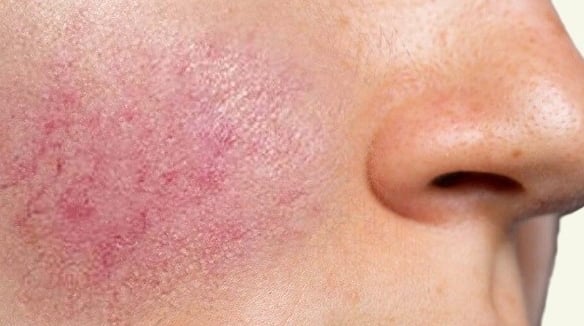Understanding Rosacea: Causes, Types, and Early Symptoms
Rosacea is a common but often misunderstood skin condition that causes redness, inflammation, and visible blood vessels, mainly on the face. This post explores its triggers, four main subtypes, and early symptoms to watch for. Early diagnosis is key to managing rosacea effectively.


Rosacea is a common yet often misunderstood chronic skin condition that affects millions of people globally. While its exact cause is unknown, its symptoms can significantly impact quality of life. Early diagnosis and a thorough understanding of rosacea are crucial to managing and minimizing its effects.
What is Rosacea?
Rosacea is a long-term inflammatory skin disorder that primarily affects the face. It’s marked by periods of flare-ups and remission and can vary in intensity from mild redness to severe inflammation.
Common Causes and Triggers
Although the root causes of rosacea remain uncertain, several factors are known to contribute to its development:
Genetics: A family history of rosacea may increase risk.
Immune system: Some people have an overactive immune response.
Environmental: Extreme weather conditions, sun exposure, or hot baths can worsen symptoms.
Lifestyle: Diet, alcohol consumption, and stress often play a role.
Four Subtypes of Rosacea
Erythematotelangiectatic Rosacea (ETR): Characterized by redness and visible blood vessels.
Papulopustular Rosacea: Resembles acne with redness, swelling, and breakouts.
Phymatous Rosacea: Leads to thickened skin and a bumpy texture, often on the nose.
Ocular Rosacea: Affects the eyes, causing redness, irritation, and a gritty feeling.
Early Symptoms to Watch For
Persistent facial redness
Flushing or blushing easily
Visible blood vessels (telangiectasia)
Red bumps or pustules
Eye irritation
The Importance of Early Diagnosis
Recognizing the signs early allows for more effective treatment. Left unmanaged, rosacea can progress and lead to permanent skin changes.
If you notice persistent redness or irritation, consult with our physician at Ariana Esthetic today. Our physician at Ariana Esthetic is experienced in diagnosing and managing all types of rosacea.
Find more about rosacea in these articles:
Top 7 Triggers That Make Rosacea Worse — And How to Avoid Them


